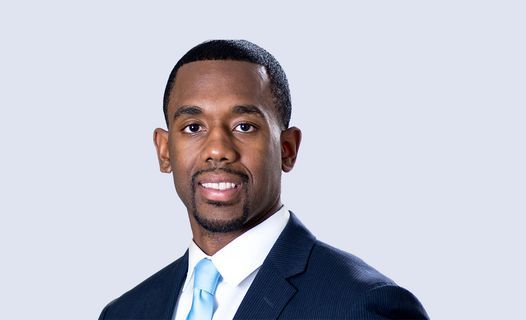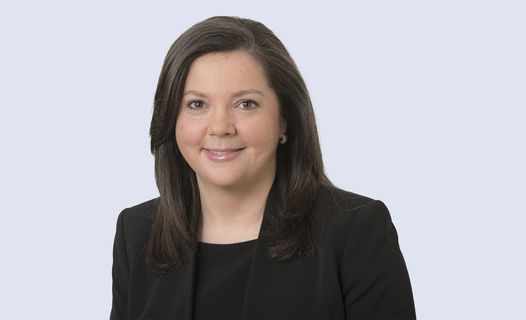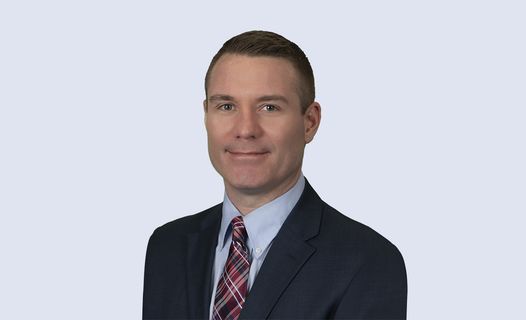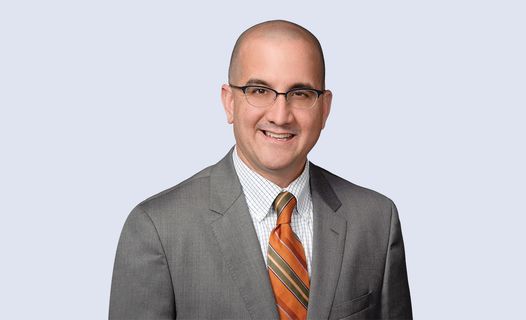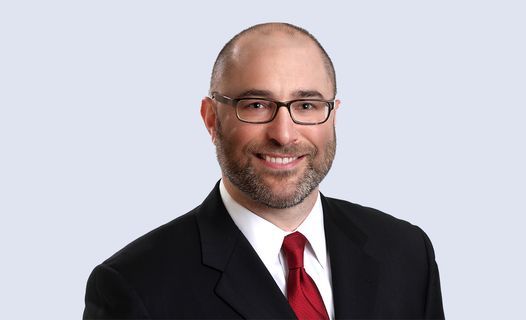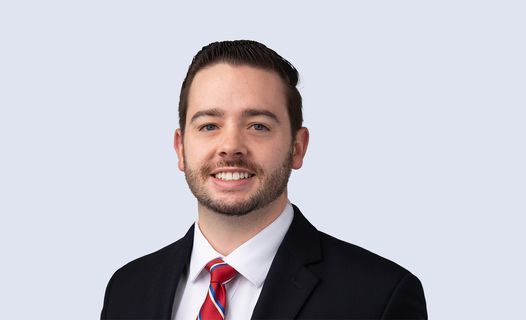It’s hard to keep up with all the recent changes to labor and employment law. While the law always seems to evolve at a rapid pace, there have been an unprecedented number of changes for the past few years—and this past month was no exception. In fact, there were so many significant developments taking place during the past month that we were once again forced to expand our monthly summary well beyond the typical “Top 10” list. In order to make sure that you stay on top of the latest changes, here is a quick review of the Top 18 stories from last month that all employers need to know about:
- An Employer’s Guide to Workplace Protections for Abortion-Related Decisions
Employers likely have questions about abortion-related employment protections and healthcare benefits after the Supreme Court’s controversial decision that overturned Roe v. Wade. Given the ruling, people in states with strict abortion limitations may end up traveling to other states to receive abortion-related care. Can employees take job-protected leave to obtain such services? What other rights might employees have under federal employment laws? Here are a few points you should keep in mind in light of the June 24 Dobbs v. Jackson Women’s Health Organization decision.
- Supreme Court’s EPA Decision May Spell Trouble for Other Agencies: An Employer’s Perspective
Given the consequential nature of many of the issues decided by the Supreme Court this year, employers can be forgiven for overlooking the Supreme Court’s June 30 opinion in West Virginia v. Environmental Protection Agency, a 6-3 decision that significantly limited the broad power the Environmental Protection Agency (EPA) attempted to exercise. But the theory used by the Court to knock back the EPA – a relatively obscure concept called the “major questions doctrine” – may impact workplace law in ways many could not have anticipated as recently as half a year ago. Under this doctrine, an agency must point to clear congressional authorization before engaging in action that courts conclude has broad-reaching economic and political significance. While SCOTUS has already notified the federal workplace safety agency that this theory could curtail its actions, many Court observers are now expecting to see an impact on wage and hour, labor, pay equity, and employment law in general in the coming years. What do employers need to know about this potentially significant development?
- Viking Cruises to a Win for California Employers: Supreme Court Closes PAGA’s Backdoor to Avoid Arbitration Agreements (For Now)
Employers can enforce arbitration agreements in California to the extent they require an employee to arbitrate individual claims under the state’s Private Attorneys General Act (PAGA), according to an 8 to 1 SCOTUS ruling that was issued on June 15. The Court also held that once the employee’s individual claims under PAGA are compelled to arbitration, the employee would not have standing to bring a representative claim under PAGA on behalf of other aggrieved employees. However, the Court left open the possibility that the California Legislature could revise PAGA to allow an employee to bring representative claims in Court, even if the employee does not share any claims with the other employees they seek to represent. Employers have been clamoring for this ruling, as this decision marks the end of an eight-year battle to treat agreements to arbitrate representative actions in the same manner as waivers of class and collective actions. You should be prepared to make immediate adjustments to your alternative dispute resolution agreements, assess any existing representative litigation to capitalize on this hard-fought relief from PAGA’s abuses, and prepare for potential legislative changes to PAGA. Here’s what you need to know about the ruling.
- OSHA Extends COVID-19 Emphasis Program for Healthcare Industry While Plotting Permanent Rule
Federal workplace safety officials just announced an extension of its COVID-19 National Emphasis Program (NEP) that focuses its inspection targeting efforts on hospital and skilled nursing care facilities that treat or handle COVID-19 patients – while also signaling that a broader and permanent rule for the healthcare industry is on the horizon. The June 30 announcement from the Occupational Safety and Health Administration (OSHA) reemphasized the agency’s promise to devote 15% of its inspections per region to four healthcare-related NAICS classifications for the foreseeable future, extending the focus past the original July 7 expiration date. This will continue to enable OSHA to police those facilities’ COVID-19 protocols and documentation while the agency endeavors to fast-track a permanent COVID-19-related healthcare rule.
- Bipartisan Push for Federal Privacy Legislation: Will It Work This Time?
After a stalemate over federal consumer privacy legislation in the past few years, a draft bill was released on June 3 that signals a major step towards bipartisan support for federal consumer privacy legislation. The American Data Privacy and Protection Act (ADPPA) includes two major points of contention: federal preemption of state privacy laws and a private right of action for consumers. (We previously discussed these issues here). Already, five states – California, Colorado, Connecticut, Utah, and Virginia – have enacted their own consumer privacy laws, and over a dozen other states are considering passing similar laws. Businesses that are subject to these laws will have to deal with a hodgepodge of different standards and regulations across state lines. The ADPPA may solve this problem by creating a national framework for consumer privacy. What do you need to know about consumer privacy laws and the ADPPA?
- Here To Stay? 5 Changes to Prepare for as Cal/OSHA Proposes Permanent COVID-19 Standard
Many California employers were hopeful there was an end in sight for COVID-19 requirements – but recent activity from state workplace safety officials means that you will most likely need to comply with pandemic rules for at least the next two years. While Cal/OSHA’s Emergency Temporary Standard (ETS) is scheduled to expire in December 2022, the agency released a proposed “permanent” rule on June 18 that proposes to impose COVID-19 requirements on workplaces through 2024. While most of the proposed new rules align with the existing requirements of the current ETS, there are some key changes employers need to know about – including the possible elimination of the controversial (and costly) exclusion pay requirement. What do employers need to know about this new permanent COVID-19 worker safety rule?
- SCOTUS Says Airplane Cargo Loaders Are Exempt from Federal Arbitration Act: Key Employer Takeaways
An airline can’t require a ramp supervisor who alleged that she frequently loaded cargo onto airplanes to arbitrate her claim for overtime pay under the Federal Arbitration Act (FAA), the Supreme Court decided in an 8-0 ruling on June 6. The supervisor filed a proposed class-action lawsuit in court – even though she signed an agreement to individually arbitrate wage-related claims – and the airline sought to enforce the arbitration agreement. The FAA generally allows employers to enforce reasonably drafted agreements to arbitrate such claims, but the Act does not apply to certain workers who are engaged in interstate commerce—i.e., workers who are directly involved in transporting goods across state or international borders. In this case, the supervisor worked at only one airport, but the SCOTUS found that her job directly involved transporting goods across state or international borders. Therefore, she could not be compelled under the FAA to resolve her dispute in arbitration. But there’s some good news for employers seeking to enforce arbitration agreements. The Court declined to broadly hold that all airline employees fall under the exception for transportation workers, and instead, limited its ruling to workers who “frequently load and unload cargo on and off airplanes that travel in interstate commerce.” What do you need to know about the ruling?
- State Officials Voice Support for OSHA’s Proposed Recordkeeping Rule – And Call for It to Go Even Further
A coalition of state Attorneys General, led by New Jersey’s acting Attorney General Matthew Platkin, just submitted a letter on June 27 to Labor Secretary Marty Walsh not only supporting OSHA’s proposed injury and illness reporting rule but pushing for it to be expanded even further. The coalition includes New Jersey, California, Connecticut, Delaware, the District of Columbia, Hawaii, Illinois, Maryland, Massachusetts, Michigan, Minnesota, Nevada, New Mexico, New York, Oregon, Rhode Island, and Vermont (the “States”). While the attorneys general agreed that the proposed rule would be a “significant improvement” on the current reporting requirements, they argued it didn’t go far enough. What would OSHA’s proposed rule require of your organization – and what might the push from the States mean for your business?
- IRS Increases Mileage Rate to 62.5 Cents Per Mile for the Rest of 2022
Responding to record-high gas prices, the IRS announced on June 9 that, for July through December of 2022, the optional standard mileage rate for business travel will increase from 58.5 cents to 62.5 cents per mile.
- Cyberattack on Luxury Resort Should Put Hospitality Industry on High Alert
Cybercriminals are finding new ways to hold their victims hostage – and a recent cyberattack on a luxury resort should serve as a warning for your business. A June 15 media report revealed that one of Oregon’s premier resorts, The Allison Inn & Spa, recently fell prey to a ransomware attack that left its employees’ and guests’ personal information exposed for the world to see. What’s unique about this particular cyberattack is that the stolen information – which includes data from 1,500 employees and more than 2,500 guests, including dates the guests stayed at the hotel as well as employees’ birthdays, phone numbers, and Social Security numbers – was posted on the public internet in easily searchable form. Typically, stolen confidential information such as this is only published on the “dark web” and is not as easily retrieved through any type of online searches. What does your business need to know about this new tactic – and what should you do to prevent such an attack?
- Massachusetts High Court Nixes App-Based Driver Ballot Question
As we reported last month and back in January, the Massachusetts Supreme Judicial Court (SJC) was considering whether voters in the state could weigh in on a ballot initiative classifying app-based drivers (those using platforms such as Uber, Lyft, DoorDash, and Instacart) as independent contractors rather than employees. Much to the dismay of the more than 80% of drivers who supported the measure, the SJC denied that opportunity to voters, at least for now. That said, the SJC’s June 14 decision in Koussa v. Attorney General provides some guidance on how the ballot question may – and almost certainly will – be revised to pass constitutional muster for a future election.
- New York Lawmakers Pass a Flurry of Worker Protection Laws
As the New York State legislative session came to a close in early June, state lawmakers passed a flurry of laws providing protections to workers, ranging from wage protections for freelance workers, prohibitions against absence control policies that penalize employers for taking protected leave, and amendments to the Hero Act, as well as laws aimed at providing employment protections in specific industries – nursing and warehousing. These laws are in addition to a salary transparency law, which was also recently passed by New York lawmakers. These bills are now head to Governor Kathy Hochul’s desk for her signature or veto. What do you need to know about these new developments?
- SCOTUS Sides with Public School Football Coach Who was Disciplined for Praying After Games
The SCOTUS recently ruled in favor of a public high school football coach who lost his job after praying in front of students at the 50-yard line following the school’s football games. The Court held that the coach did not engage in government speech when he prayed after games with students present. The Court also reversed the lower court’s ruling that the school district had a constitutional duty to prohibit the prayer. The coach “offered his prayers quietly while his students were otherwise occupied” and “when school employees were free to speak with a friend, call for a reservation at a restaurant, check email, or attend to other personal matters,” the Court said in a 6-3 ruling on June 27. Although public school teachers generally cannot lead students in prayer, the Court noted in this particular case that the coach was willing to wait until the game was over to say a “short, private, personal prayer” at midfield. What do you need to know about the ruling?
- Colorado Expands Whistleblower Protections for Health and Safety Violations at the Workplace
Colorado recently expanded whistleblower protections at the state law level – and employers need to make sure their health and safety protocols are fully compliant if they want to avoid costly litigation. Under the new law recently signed by Governor Polis, both employees and independent contractors may now file a complaint with the Colorado Department of Labor & Employment (CDLE) if they have a reasonable, good faith belief that their employer or principal is committing a workplace violation of a government health or safety rule or a significant workplace health or safety threat. The law, which went into effect immediately, expands Colorado’s Public Health Emergency Whistleblower (PHEW) law into broad new territories. What do you need to know about this new law – and what should you to do to prepare?
- Deadline Looming: Businesses with Minnesota Employees Need to Take 5 Steps to Comply with New Frontline Worker Bonus Pay Law
Minnesota, a hotbed of COVID-19 at various times over the past two years, has a new law that recognizes the state’s frontline workers by offering them the chance to receive part of a $500 million bonus pool – and employers need to take specific steps to ensure they fulfill their obligations to this new “hero pay” law. Minnesota Governor Tim Walz signed the bonus-pay legislative bill, also informally referred to the “Frontline Worker Pay Law,” and the period of time that workers will be able to apply for their share of these funds started June 8, kicking employers’ 15-day notice obligations into gear. What are the five steps that you, as an employer of Minnesota employees, should take to ensure you comply with this new law if it applies to you?
- Seattle City Council Approves Wage Hike for App-Based Delivery Drivers: What Gig Economy Businesses Need to Know
Gig economy businesses will soon need to ensure all app-based delivery drivers working in Seattle earn the city’s minimum wage, which is currently $17.27 an hour. Under the ordinance unanimously passed by the Seattle City Council on May 31 and signed by the mayor on June 13, gig economy companies will be required to reimburse covered workers for business expenses and tips may not be credited towards minimum wage. Additionally, companies will be prohibited from requiring those workers to accept a certain number of jobs or work a minimum number of hours. App-based delivery drivers will still be deemed independent contractors under the measure, but business groups fear the policy will eliminate the flexibility that gig workers seek and drive-up costs for consumers. What do you need to know about the measure?
- Dept of Labor Sued in Crypto 401(k) Guidance Lawsuit: What Employers Need to Know
The battle over crypto 401(k)s recently reached a fever pitch as 401(k) provider ForUsAll Inc. filed a lawsuit against the U.S. Department of Labor (DOL) in a Washington, D.C. federal court on June 2, alleging that federal officials are improperly restricting investment options. ForUsAll, which claims to be the first 401(k) platform to provide employees access to cryptocurrency, alleges that the DOL violated the Administrative Procedure Act (APA) by issuing Guidance in March that warned fiduciaries against including cryptocurrency in their 401(k) plans. What do employers need to know about this latest salvo in the ongoing conflict?
- Mine Operators on Notice: 3 Biggest Takeaways from MSHA’s Latest Quarterly Call
MSHA just held its latest quarterly stakeholder call to put mine operators on notice of points of emphasis and other priorities it will seek to address in the near future, meaning you need to get up to speed if you want to focus on critical areas for your operations. The June 28 call marked the first for new Assistant Secretary Christopher Williamson, who appears to be setting an ambitious agenda for the mine safety agency. What are the three biggest takeaways from this call that you need to know about?
We will continue to monitor developments related to all aspects of workplace law. Make sure you are subscribed to Fisher Phillips’ Insight system to get the most up-to-date information. If you have questions, contact your Fisher Phillips attorney.


